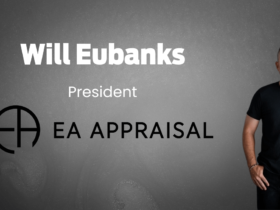In one new episode of the “Real Estate Insiders Unfiltered Podcast,” hosts James Dwiggins and Keith Robinson are joined by Zillow Group CEO Jeremy Wacksman for an in-depth conversation about the role of technology in real estate and Zillow’s ‘Super App’.
This conversation has been edited for length and clarity. To start the episode, Wacksman discusses the importance of technology in real estate.
Wacksman: This team was obsessed and focused on solving consumer and customer problems with technology, which really appealed to me. That brought me here in 2009 and has kept me ever since. Six months after I came here, the app store on the iPhone was launched and we realized that this was going to be the way real estate and categories like ours were going to work, so I started working on that.
Dwiggins: Give us a layout of where you are in the process of building the Zillow Super app.
Wacksman: That’s the Zillow app for a buyer and a seller. We use the term ‘Super App’ to indicate that we bring many different services together in one app. What does the buyer or seller want? They want to be able to open the app and do everything from start to finish inside, be informed, remain truly transparent, have control and do things digitally. This complex project management from many parties must all come together to make that one-stop shop possible.
Dwiggins: Tell us about the acquisition of Virtual Staging AI and the strategy for this.
Wacksman: They’re a great young company that has innovated a way to do virtual staging. And that, as you outlined, is another example of how we are enabling the real estate sector to become more digital, more integrated and more productive. That requires generative AI and a map that can perform a walkthrough, which sounds fantastic.
Robinson: How would you help agents understand how to position your technology for the good of the industry and for the good of the agent?
Wacksman: Today’s innovation is tomorrow’s commitment. That’s what technology does. We discover something new, we show it to our friends. We wake up expecting it to work and be the standard. That is what the internet, the mobile phone, has been doing for decades.
Technology pushes the consumer forward. You need to keep track of where the buyer and seller are going. That’s really our mission at Zillow.
Technology and change can be scary. Agents have a tough job and are very busy with what they do. We have a phrase at Zillow. We say, ‘We do technology so you can do real estate.’ I guess that would be my comment: Let’s do the technology. You don’t have to be well informed about all the things that are coming.
Robinson: What you all do is try to get as far into the house as possible, at a distance. How do you see that expanding?
Wacksman: I actually think customers will take more tours and spend more time there. Every time you give consumers more tools, they become more empowered and efficient, but that efficiency doesn’t mean they spend less time dreaming and shopping.
Dwiggins: How do you balance what the agents and brokerage want and the wishes of the sellers with this app?
Wacksman: For us, consumer empowerment is agent empowerment. The consumer is pushing themselves down the funnel to become more transaction-ready. For an agent, that’s a higher intent lead, a better educated buyer on all these regulatory changes. You’ll also have a more informed buyer about how commissions work. This gives good sales agents the space to prove themselves.
On the other hand, we’ve spent billions of dollars over the past decade building and developing (or buying and integrating) software for brokers and teams. To get the buyer and seller what they want, we need super agents, not just agents.
The conversation ends with Wacksman sharing his thoughts on the National Association of Real Estate Agents‘ Clear cooperation policy (CCP).
Wacksman: It’s an open, free marketplace that benefits everyone: consumers and agents. Things like Clear Cooperation ensure that the most deals are available to buyers and sellers. Private listing networks and the removal of CCP are bad for buyers, sellers and agents.













Leave a Reply